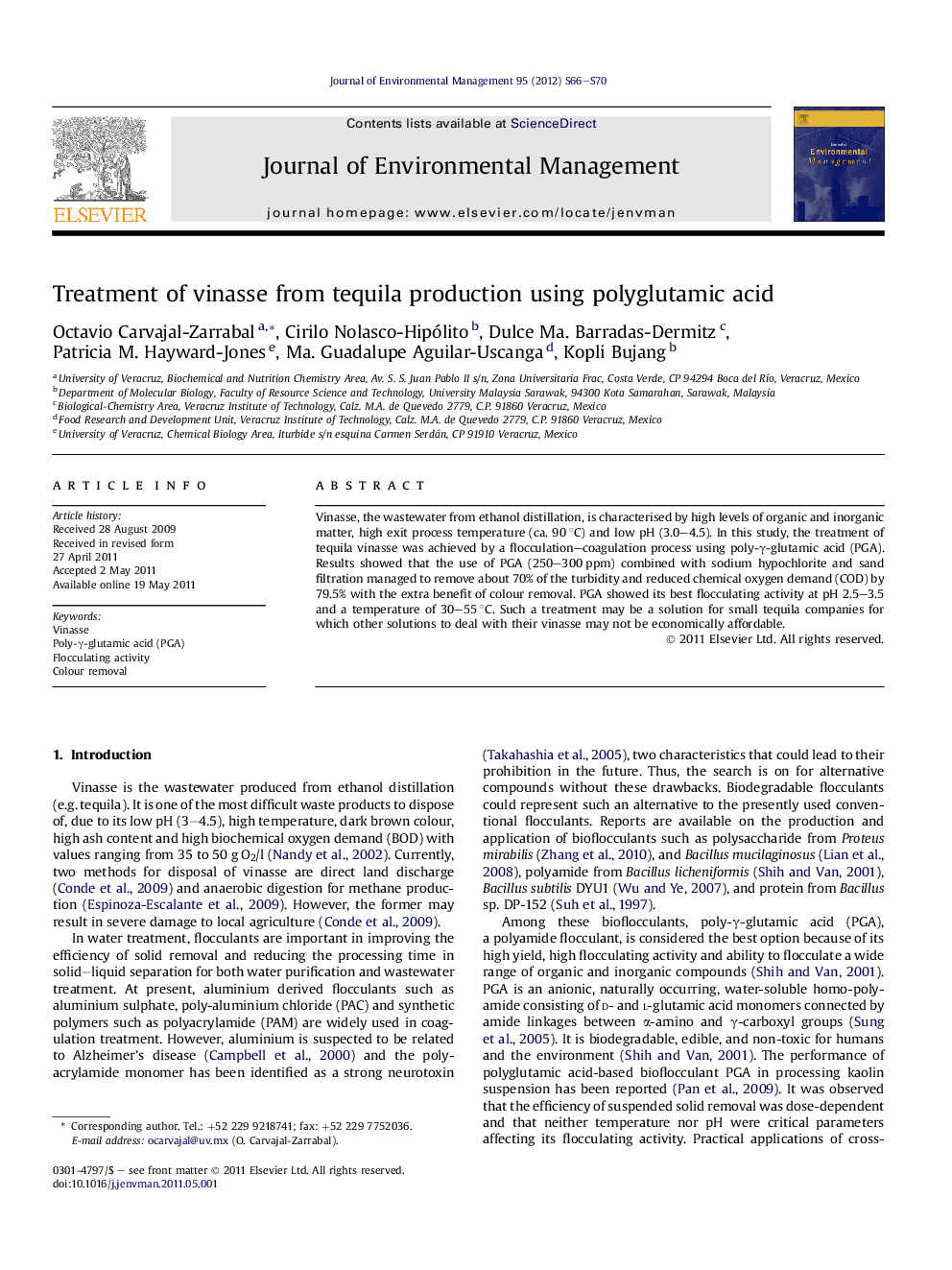| Article ID | Journal | Published Year | Pages | File Type |
|---|---|---|---|---|
| 1057029 | Journal of Environmental Management | 2012 | 5 Pages |
Vinasse, the wastewater from ethanol distillation, is characterised by high levels of organic and inorganic matter, high exit process temperature (ca. 90 °C) and low pH (3.0–4.5). In this study, the treatment of tequila vinasse was achieved by a flocculation–coagulation process using poly-γ-glutamic acid (PGA). Results showed that the use of PGA (250–300 ppm) combined with sodium hypochlorite and sand filtration managed to remove about 70% of the turbidity and reduced chemical oxygen demand (COD) by 79.5% with the extra benefit of colour removal. PGA showed its best flocculating activity at pH 2.5–3.5 and a temperature of 30–55 °C. Such a treatment may be a solution for small tequila companies for which other solutions to deal with their vinasse may not be economically affordable.
► Vinasse from tequila was treated with PGA for solids removal. ► PGA showed good flocculating activity which reduced both the turbidity and COD. ► Treatment of vinasse with biodegradable polymers is preferred compared to synthetic alternatives. ► Solids removed by PGA from here are applicable for use as fertilizer or animal feed.
